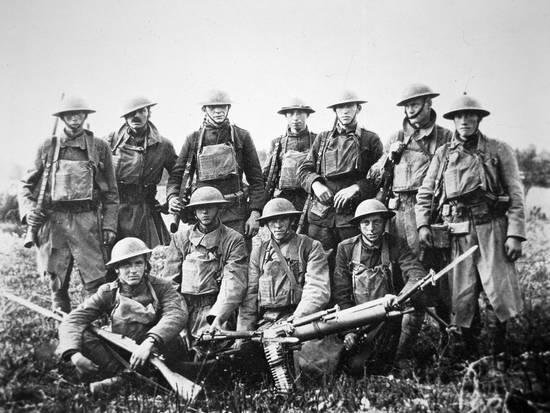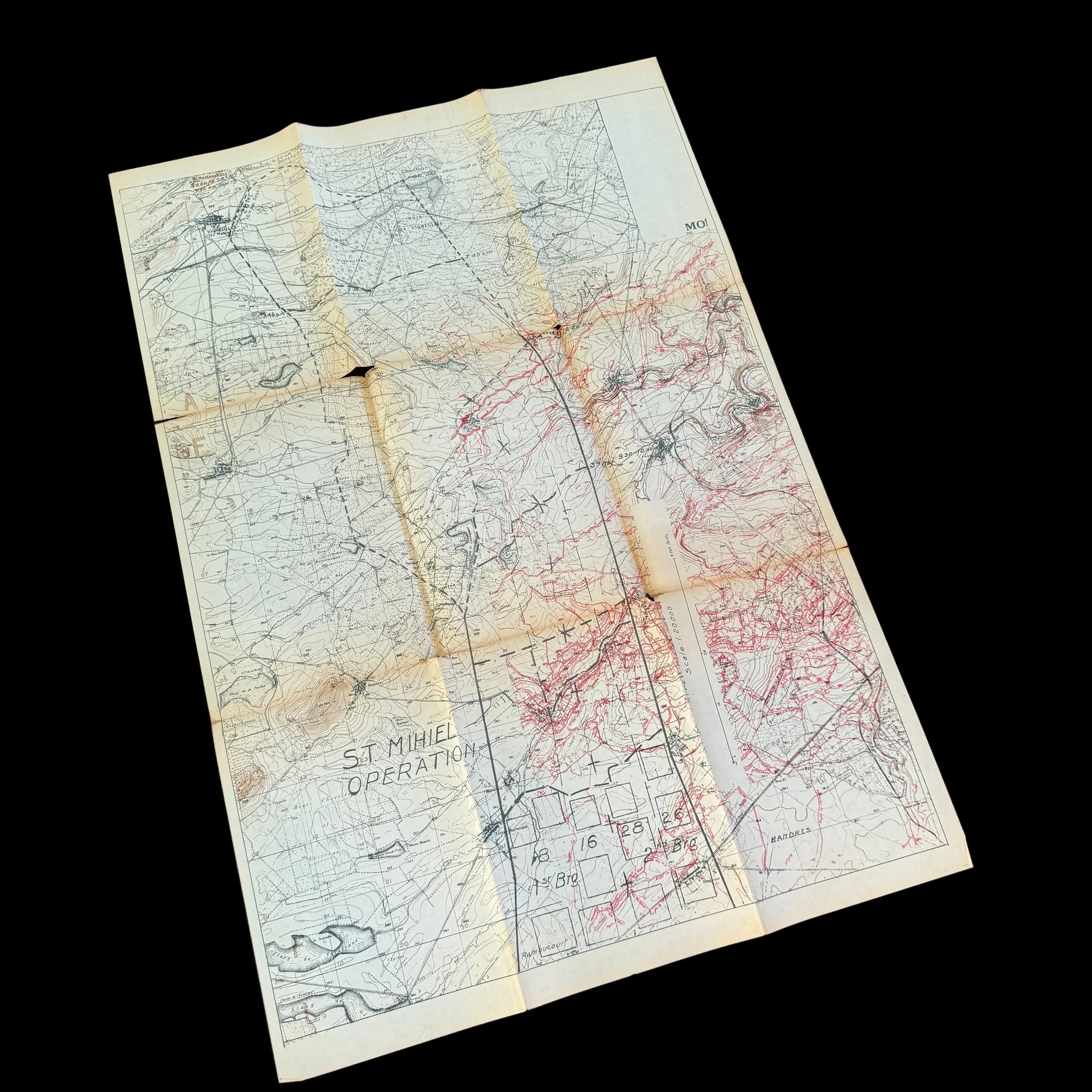RARE! World War I Battle St. Mihiel Sector American Expeditionary Forces (AEF) Operations Map



















RARE! World War I Battle St. Mihiel Sector American Expeditionary Forces (AEF) Operations Map
Comes with a hand-signed C.O.A.
This rare and museum-grade World War I map shows the Battle St. Mihiel sector. Conducted from September 12 to 15, 1918, stands as a significant milestone in World War I, marking the first large-scale, independent offensive led by the American Expeditionary Forces (AEF) under General John J. Pershing. This operation not only demonstrated the growing prowess of American military forces but also played a crucial role in weakening the German position on the Western Front. The St. Mihiel salient, a bulge in the front lines that the Germans had held since 1914, was strategically important, as it threatened the Allied supply lines and communications. The successful reduction of this salient showcased the coordination and effectiveness of the Allied forces, particularly highlighting the contributions of various American divisions.
Background and Strategic Importance
The St. Mihiel salient was created during the early stages of the war, as German forces launched a series of offensives aimed at encircling Verdun and cutting off the vital railroads and roadways. By 1918, the salient extended approximately 25 miles from the town of St. Mihiel, forming a wedge into the French lines. This protrusion hindered Allied movements and posed a continuous threat to their strategic positions. General Pershing, recognizing the importance of this area, proposed an offensive to eliminate the salient and thereby facilitate future operations, including the Meuse-Argonne Offensive.
Planning and Preparation
The planning for the St. Mihiel Operation involved meticulous coordination between the American and French forces. General Pershing's strategy relied on a rapid, coordinated assault to overwhelm the German defenders before they could regroup or reinforce their positions. The operation called for a two-pronged attack: the main assault from the south, led by the U.S. I Corps and IV Corps, and a secondary assault from the west by the French II Colonial Corps and the U.S. V Corps. In total, approximately 550,000 American troops and 110,000 French troops were mobilized for the operation, supported by 1,400 aircraft under the command of Colonel William "Billy" Mitchell, marking one of the earliest examples of coordinated air-ground warfare.
The Offensive Begins
On September 12, 1918, the offensive commenced with a massive artillery barrage, utilizing around 3,000 guns to soften the German defenses. This was followed by the advance of infantry divisions across a broad front. Key American divisions involved in the assault included the 1st, 2nd, 4th, 26th, 42nd, and 89th Divisions, among others. These units encountered varying degrees of resistance, with some sectors experiencing fierce fighting while others found the German lines more sparsely defended.
The 1st Division, known as the "Big Red One," played a pivotal role in the southern assault. Their objective was to capture the towns of Nonsard and Pannes, key positions that would help in breaking through the German lines. Meanwhile, the 42nd Division, also known as the "Rainbow Division" due to its diverse composition of National Guard units from across the United States, advanced through the center of the salient, encountering stiff resistance but ultimately achieving their objectives through tenacity and effective coordination.
The 2nd Division, which included the 4th Marine Brigade, demonstrated exceptional valor and effectiveness. This division was tasked with advancing from the south toward the village of Montsec, a heavily fortified German position. Despite the challenging terrain and strong defenses, the 2nd Division managed to capture Montsec by the end of the first day, a testament to their rigorous training and combat readiness.
German Response and Outcome
The German forces, initially taken by surprise due to the scale and speed of the American offensive, attempted to mount a counter-offensive but were largely unsuccessful. The rapid advance of American troops, combined with effective use of artillery and air support, disrupted German communications and supply lines. By September 16, the St. Mihiel salient had been effectively eliminated, with Allied forces capturing approximately 15,000 German prisoners and a significant amount of materiel.
The success of the St. Mihiel Operation had profound implications for the overall course of the war. It demonstrated the growing effectiveness of the AEF and bolstered Allied morale. Furthermore, the reduction of the salient freed up Allied forces and resources, allowing for the subsequent Meuse-Argonne Offensive, which would become one of the largest and deadliest battles in American military history.
Aftermath and Legacy
The St. Mihiel Operation is remembered not only for its strategic significance but also for the lessons it provided in modern warfare. It showcased the importance of combined arms operations, where infantry, artillery, and air forces work in close coordination to achieve tactical and strategic objectives. The use of tanks, though in limited numbers, also hinted at the future of armored warfare.
For the American divisions that participated, the operation was a baptism of fire that tested their mettle and forged their reputations. Divisions such as the 1st, 2nd, and 42nd gained invaluable combat experience, which would prove essential in the later stages of the war. The operation also highlighted the logistical capabilities of the AEF, as they managed to mobilize and supply a large force over a relatively short period.
In conclusion, the St. Mihiel Operation stands as a landmark event in World War I, showcasing the emergence of American military power on the global stage. It was a testament to the strategic vision of General Pershing and the bravery and determination of the American soldiers who fought. The successful reduction of the salient not only eased the strategic pressures on the Allies but also set the stage for the final offensives that would ultimately lead to the end of the war.